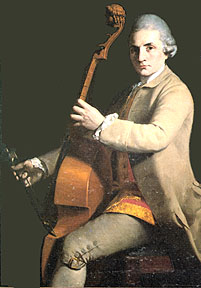Posts Tagged ‘Viola da Gamba Technique’
Viola da Gamba (Viol) – The Gap Between the Old and New Technique Prolonged (Musicians, Psychology, Pain, Strain, Injuries, Posture, Alexander Technique)(Albuquerque)
This ebook, An Alexander Technique Approach to Viola da Gamba (Viol) Technique, is published on this website in a PDF format. It is very detailed and practical, and it will give you the physical tools you need to take the limits off of your ability to create the accurate viol technique you want without sacrificing your body.
This ebook is also for sale on all AMAZON websites in a KINDLE format.
Located in Albuquerque, New Mexico, U.S.A. (MOVEMENT THERAPY)
WHEN YOU’RE IN THE MIDDLE OF MAKING BIG CHANGES TO YOUR TECHNIQUE, IF YOU BELIEVE THAT YOU’RE IN A MAJOR STRUGGLE TO LET GO OF THE OLD TECHNIQUE, AS IF THE OLD TECHNIQUE IS FORCING/DEMANDING YOU TO DO IT THE OLD WAY, THEN YOU WILL DRAMATICALLY SLOW DOWN YOUR INTEGRATING THE NEW TECHNIQUE PROCESS.
Is what I said obvious? Probably, but it may not have been obvious until I just presented it to you.
What are the implications of seeing that this is happening in your singing, playing, or conducting? “THE TRUTH SHALL MAKE YOU FREE”, as said by Martin Luther Kind. “YOU CAN’T CHANGE WHAT YOU DON’T ACKNOWLEDGE”, as stated by Dr. Phil.
The reason that believing that the old way is dominate slows down your movement to the new way, is because it doesn’t leave room for the morphing of your old technique into the new technique. This belief sets up a resistance to the birth of the new technique.
It means you’re resisting the change to the new technique unconsciously, if you’re not aware you’re doing this. Here’s my definition of “unconsciously”. It means you don’t know what you’re beliefs are, don’t know what your motivation is, don’t know you’re in your own way, and even if you say you want the new technique, you’re not sure you really want what the new improved technique offers.
What is the solution? Let’s assume you give yourself a few weeks at least of not having to perform or conduct. Simply, there is no way that making changes to your technique won’t be slowed down, if you have performances. If you have a performance, then you have to go with the established technique until you master the new technique.
If you offer yourself the luxury of a few weeks off from performances, then you also need not cling to what you’re changing. What do I mean? The Alexander Technique helps the performer or conductor make changes to his or her technique by placing all of the focus on how you’re performing or conducting, NOT on how well you’re playing, singing, or conducting.
IN OTHER WORDS IT DOESN’T MATTER HOW BAD YOU SOUND OR CONDUCT AS LEARN THE NEW TECHNIQUE, WHAT MATTERS IS HOW MUCH FREEDOM YOU GIVE YOURSELF TO MAKE A RAPID TECHNIQUE CHANGE TO A BETTER TECHNIQUE AND SOUND, OR CONDUCTED PIECE
This freedom to be a “bad” performer or conductor untethers you for the old technique that isn’t working, and allows you to quickly embrace/accept/integrate the new.
If you’re willing to leap off the bridge with the faith that you’ll quickly make the new technique an established technique, then the learning will be quick. Psychologically this means that you’ll feel safe enough to be willing to let go of what hasn’t worked for you and trust the new.
When a performer or conductor comes to me I have him or her play, sing, or conduct right away. I ask the performer or conductor to tell me what doesn’t work. There’s usually a list of things that don’t come easy, so I choose one thing to focus on.
Now I know that this isn’t way the majority of Alexander Technique teachers work. What usually happens is that an Alexander teacher will address general principles of standing up and sitting down and good posture in standing or sitting at the beginning. But I really like to give the client something to work on right away on their instrument or in conducting.
I believe that specific technique solutions addressed in playing, singing, or conducting can move in tandem with general postural/movement solutions from the beginning.
HAVE FAITH IN YOUR ABILITY TO LEARN SOMETHING NEW, NO MATTER HOW LONG YOU’VE PLAYED, SUNG, OR CONDUCTED.
